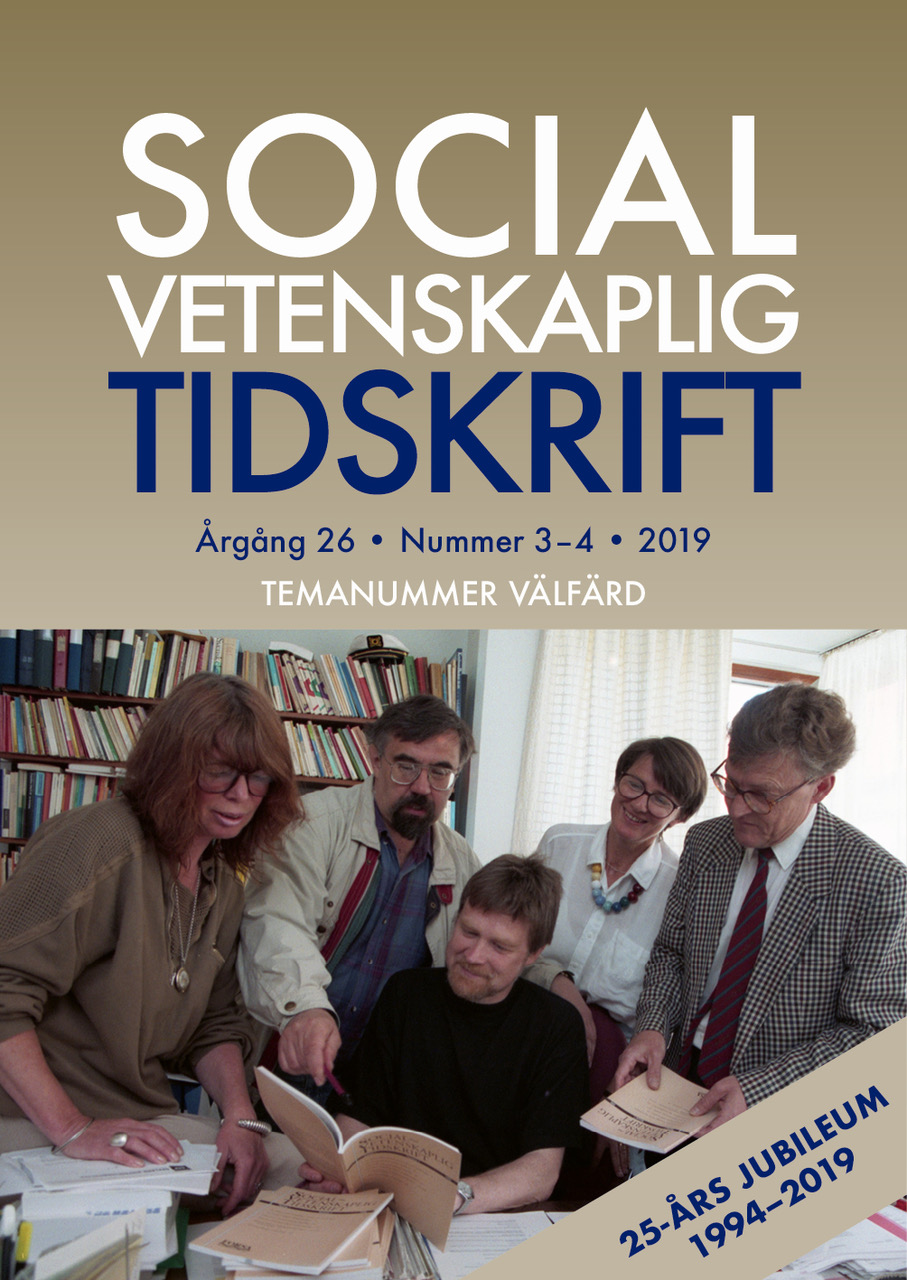Utifrån ålder eller behov?
– Ålder som organiserande princip för stödinsatser till äldre
DOI:
https://doi.org/10.3384/SVT.2019.26.3-4.3092Abstract
According to age or according to needs? Age as an organizing principle for support to older people
Moral economy studies have investigated public opinion as to who should get what and why, and concluded that older people constitute a group that is perceived to deserve and be in need of support from society. A weakness of the approach is that the category of older people is taken for granted and specific age-limits are left unproblematized. The present study investigates views among municipal needs assessors on the use of chronological age for the approval of supportive services, where persons over a particular age may be entitled to eldercare regardless of needs, and persons above the age of 65 are denied the right to personal assistance. Are these age-limits regarded as justified? The study is based on interviews with a total of 36 needs assessors; seven interviews were conducted with groups/pairs and one individually. Three main positions were identified, where age-limits were commented on as (1) a political reality, (2) unjustified with reference to the heterogeneity in health and needs, and (3) partly reasonable given the correlation between age and needs. One finding was that the use of chronological age was questioned to a greater extent in relation to eldercare and to a lesser extent in relation to the exclusion of persons above the age of 65 from personal assistance. The article shows that needs assessors do not have one, but several conceptions of the relevance of chronological age, and it highlights the importance of adding a contextual understanding to the general images of older people as a deserving group that have been presented in studies on moral economy.
Downloads
Published
How to Cite
Issue
Section
License
Allt material i Socialvetenskaplig tidskrift publiceras sedan 2022 (Vol 28 Nr 2) med omedelbar öppen tillgång (open access), under Creative Commons-licensen CC BY 4.0. Upphovsrätten till innehållet tillhör respektive författare.
Allt innehåll i tidskriften är fritt tillgängligt utan kostnad och får fritt läsas, laddas ned, kopieras, delas, skrivas ut och länkas. När innehållet används måste författare, källa och licens anges. Författaren kan fritt göra sin publicerade text tillgänglig på institutionella och internetbaserade arkiv, exempelvis sitt lärosätes digitala arkiv eller andra tjänster för detta.
Inga publiceringsavgifter tas ut vid publicering i Socialvetenskaplig tidskrift.


